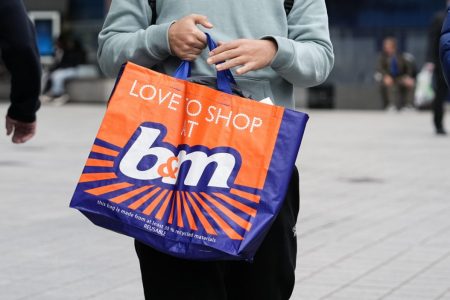In a bid to capture budget-conscious consumers in the post-holiday spending slump, Iceland has launched its “biggest ever Mega Deals event.” This aggressive pricing strategy mirrors similar moves by competitors Asda and Morrisons, signaling a potential supermarket price war. Iceland’s deals include a popular “10 for £10” offer on frozen favorites like chicken dippers, fishcakes, and pizzas, as well as a “5 for £5” deal on lunchbox snacks. Further bolstering its value proposition, Iceland has expanded its £1 or less product range to over 1,000 items and introduced a “buy two, get one free” offer on various essentials, encompassing not just groceries but also household and health and beauty products. This focus on affordability aims to alleviate the financial strain on families facing rising living costs in January.
Asda has also joined the fray, significantly reducing prices on over 2,560 essential household items. This “Big Jan Price Drop” initiative results in an average price reduction of 26% on everyday products such as sausages, dishwasher tablets, and laundry detergent. This broad price cut across numerous product categories demonstrates Asda’s commitment to attracting and retaining price-sensitive shoppers. The move positions Asda competitively against discount retailers like Aldi and Lidl, which have been steadily gaining market share amid the ongoing cost-of-living crisis.
Morrisons has adopted a different tack, implementing a price-matching strategy targeting Aldi and Lidl directly. The supermarket chain has expanded its price match program to encompass over 500 essential and best-selling products, including olive oil, coffee, eggs, and pasta sauce. This expansion builds upon existing price matches on staple items like bananas, potatoes, and broccoli. By explicitly matching prices with budget retailers, Morrisons aims to prevent customers from switching to cheaper alternatives, retaining their loyalty by offering comparable value.
This widespread trend of price reductions and price matching highlights the intensified competition within the supermarket sector. As consumers become increasingly cost-conscious, major retailers are striving to offer the best possible value to maintain market share. Sainsbury’s and Tesco have also implemented price-matching strategies against Aldi, further intensifying the competitive landscape. While these January price cuts offer welcome relief for consumers, retailers caution that price increases are anticipated in April due to impending tax hikes. This underscores the volatile nature of the current economic climate and the challenges faced by both retailers and consumers.
Beyond these pricing strategies, Iceland demonstrates a mixed picture of expansion and contraction. While the supermarket announced the closure of two stores in Borehamwood and Exeter, it is actively searching for up to 250 new locations, indicating a strategic realignment of its physical presence. This suggests a focus on optimizing its store portfolio for profitability and market reach, potentially moving away from underperforming locations to areas with greater growth potential.
For budget-conscious shoppers, various strategies can help mitigate rising grocery costs. Taking advantage of discounted items marked with yellow or red stickers, planning meals with a shopping list to avoid impulse purchases, opting for own-brand products over premium brands, and utilizing supermarket schemes for imperfect produce can significantly reduce spending. Government programs like Healthy Start vouchers and local council-provided supermarket vouchers offer additional support for eligible low-income families. These combined strategies empower consumers to navigate the challenges of rising food prices and maintain a healthy and affordable diet.











